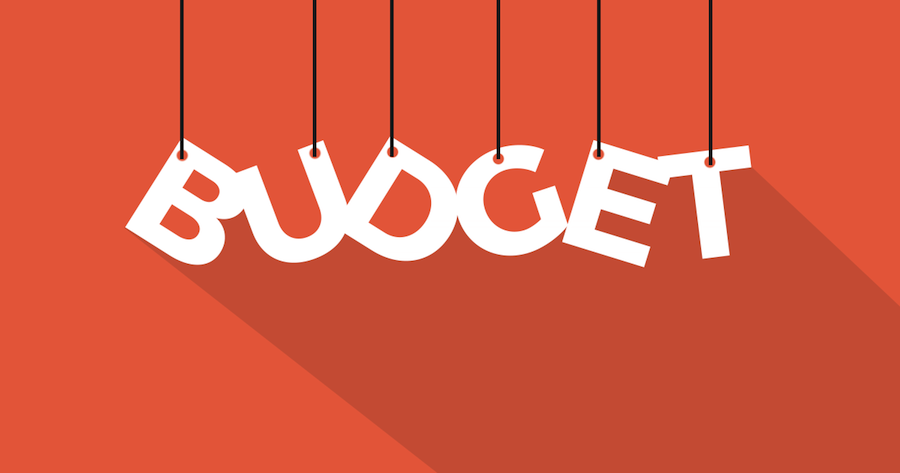A budget is a great way to help you feel more in control of your finances and make it a lot easier to save money. If you have financial goals or want to determine what is most important to you when it comes to spending money, a budget is a great place to start. People and businesses who don’t budget properly often find themselves struggling, and sometimes even filing for bankruptcy. It is important to understand where your money is going each month so you can be sure you aren’t accidentally spending more than you have.
Creating a budget is different for everyone, and your budget doesn’t have to look like the next person’s, it just has to work for you. Here are four easy steps to creating a budget that will help you be more financially responsible.

What is Your Net Income?
The very first step to creating a budget for yourself is to determine how much you make each month, meaning your total “take-home” pay. You want to pay attention to this distinction, otherwise, you will create an entire budget based on the wrong amount of money. When you got your job they may have told you a specific salary amount, however, this number is not actually how much money you take home throughout the year.
Your net pay is the amount of money you have in your bank account after taxes and employer-provided programs have been deducted. If you work as a freelancer, gig worker, contractor, or you are self-employed, you have to keep detailed records of how much you make each month to base your budget off of.
Calculate Your Spending
Everyone has certain things they are obligated to pay for each month, so your next step is to figure out how much your monthly expenses are. These are payments like rent, car payments, insurance, basic groceries, and anything else that you cannot skip paying. It can be helpful to categorize your payments in this step to get a good idea of how much of your money is going to certain parts of your life.
This could also show you that you’re living a little bit beyond your means. For example, if your grocery bill is taking up a majority of your monthly expenses, you may want to evaluate why it is so high and see where you could make some changes. Similarly, if you find that your rent accounts for more than a third of your income, it could be a sign that you cannot afford that apartment or the area you live in.
Set Realistic Goals
Next comes the part that probably inspired you to create a budget in the first place, setting financial goals. You should set both short and long-term goals for yourself. Short-term goals take around one to three years and can be something like paying off loans or reaching a certain value in your emergency fund. Long-term goals may take a decade or several to accomplish and could be something like saving for retirement.
You can set as many goals as you want, but make sure they are realistic and aren’t going to leave you struggling to pay for everything else each month. These goals are also not set in stone, and you can change them depending on what changes occur in your life. However, it is very helpful to get your financial goals organized and said out loud so that you can be more proactive about working toward them.
Create a Plan
Once you know how much you have to spend each month, and what you want to accomplish for the future, you are ready to create your spending plan. The first thing you need to do is determine how much money you are going to spend on essential items. Then, you can determine how much you want to put toward your various savings projects, and how much you want to have left over to spend on luxuries.
Obviously, the more money you save each month the quicker you will reach your financial goals. However, you also don’t want to spend your life working with no money left to enjoy yourself with. You will have to determine how much money is enough for you to divide between these two categories. It is important to “pay yourself first” and immediately put the amount you have chosen into your savings account when you get your paycheck.
If you save less than you spend on things like entertainment and eating out, your financial goals will take a lot longer to achieve. However if your goals don’t have deadlines and you want to be able to enjoy the money you make by buying things that make you happy, you might choose to save less. Overall, a good budget is about determining what is most important to you when it comes to your money and sticking to the plan you created.